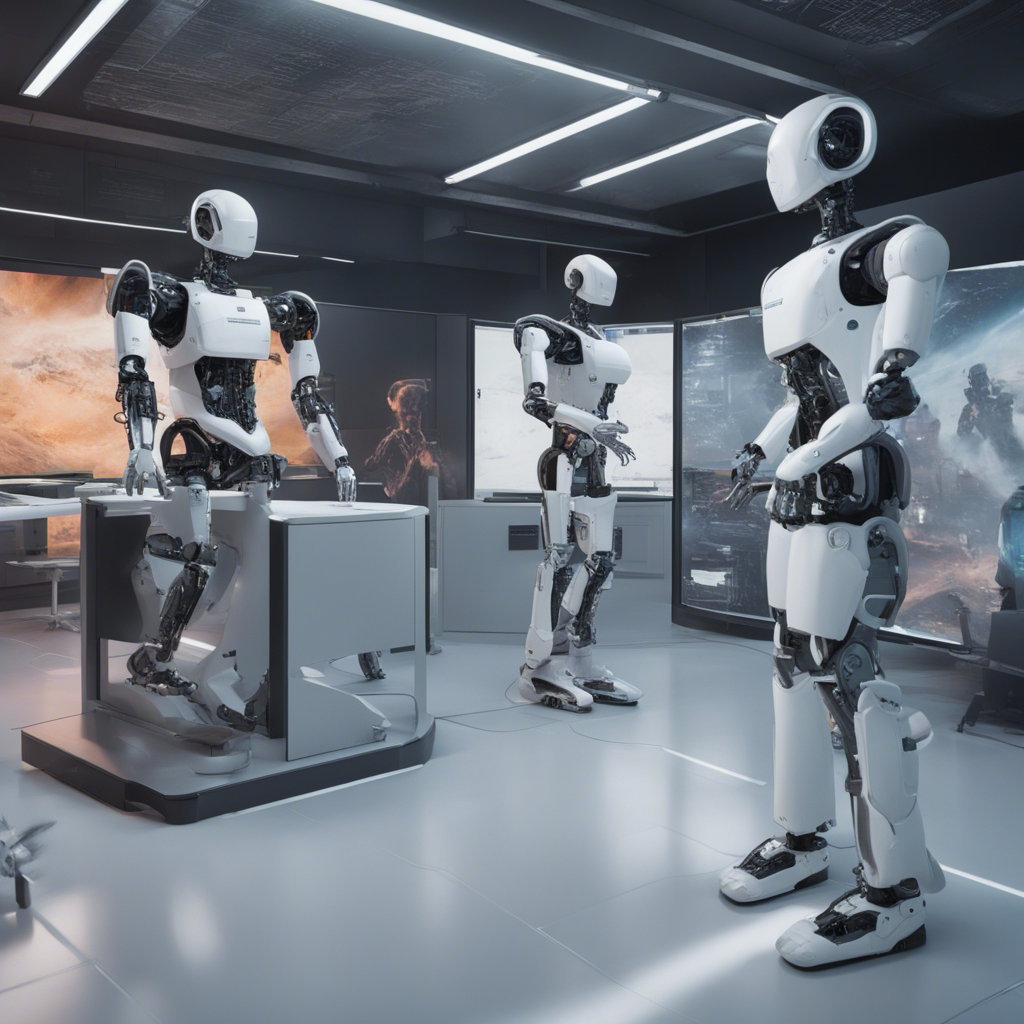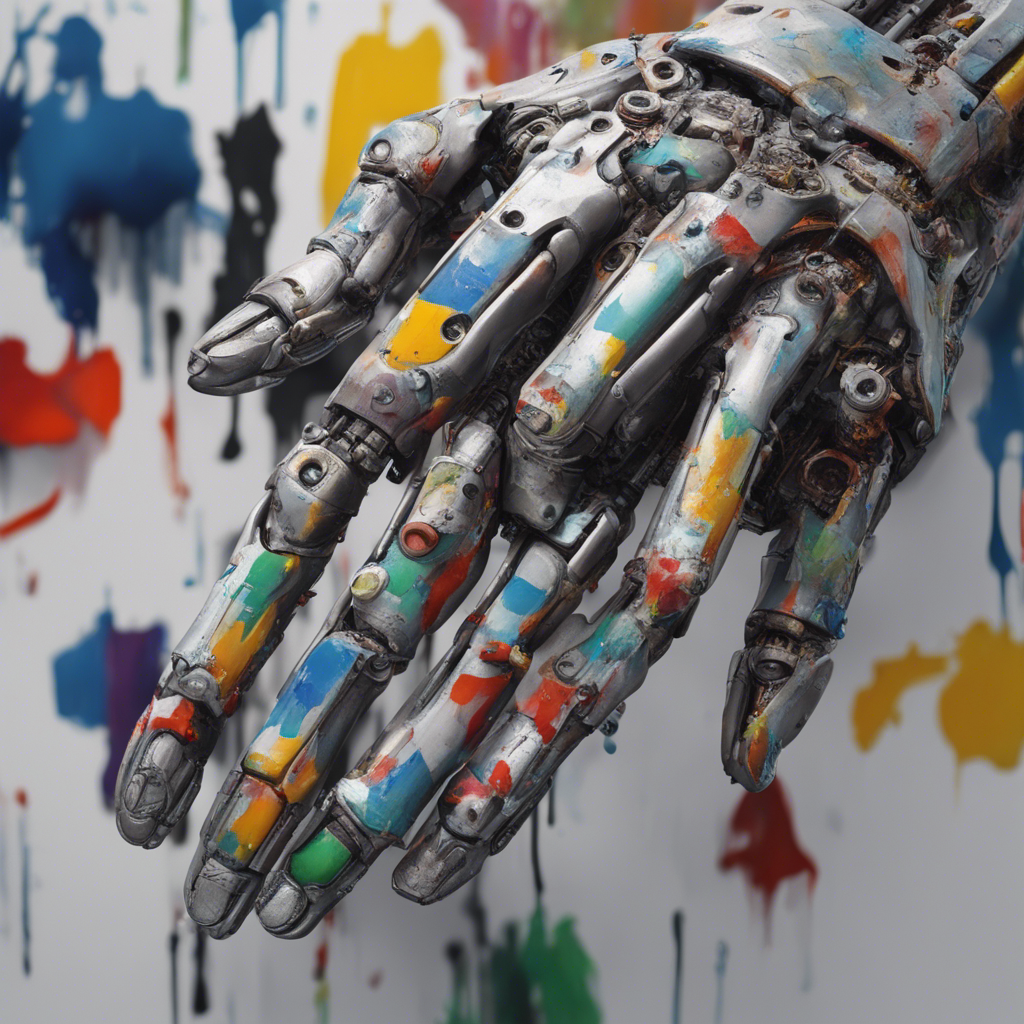
AI in Healthcare: A New Frontier in 2024
Artificial Intelligence (AI) has been advancing rapidly over the past decade, and its application in the healthcare industry has the potential to revolutionize patient care and outcomes. As we look ahead to the year 2024, it is clear that AI will play a major role in shaping the future of healthcare. In this blog post, we will explore the various areas where AI is making significant strides and the potential impact it can have on healthcare as a new frontier.
AI-Assisted Diagnostics
One of the key areas where AI is poised to make a significant impact in healthcare is in diagnostics. Traditional diagnostic methods are often time-consuming and prone to human error. However, by leveraging AI algorithms, healthcare providers can enhance their diagnostic capabilities, leading to more accurate and timely diagnoses.
AI-powered diagnostic tools can analyze massive amounts of patient data, including medical records, lab results, and imaging studies. These algorithms can quickly detect patterns and anomalies that may not be easily discernible to a human eye. By comparing a patient’s data to a vast database of knowledge, AI algorithms can provide healthcare professionals with valuable insights and help them make more informed decisions.
A study published in the journal Nature Medicine^[1] demonstrated the potential of AI in diagnostics. The researchers trained an AI model to detect skin cancers by analyzing images of skin lesions. The AI model matched the performance of dermatologists in accurately identifying skin cancers, highlighting the potential of AI to assist in early detection and diagnosis.
Personalized Treatment Plans
AI can also play a crucial role in developing personalized treatment plans for patients. Each individual is unique, and their response to treatment may vary. AI algorithms can leverage patient data and medical knowledge to predict these responses and recommend personalized treatment options.
By considering a patient’s medical history, genetic information, lifestyle factors, and treatment outcomes of similar patients, AI algorithms can generate tailored treatment plans that are more likely to yield positive results. This approach, known as precision medicine, has the potential to revolutionize the way healthcare is delivered.
A notable example of precision medicine is the usage of AI algorithms in cancer treatment. Researchers at Memorial Sloan Kettering Cancer Center developed an AI model that can predict the effectiveness of different cancer treatments based on a patient’s genetic makeup and other factors^[2]. By utilizing AI, physicians can have a better understanding of which treatment option is likely to be the most effective for an individual patient, improving their chances of successful treatment.
AI-powered Surgical Assistants
Surgical procedures are complex and demand precision and accuracy. AI-powered surgical assistants can enhance the capabilities of surgical teams, leading to safer and more efficient procedures. By analyzing real-time patient data and providing real-time guidance, AI can assist surgeons in making more informed decisions during surgery.
One area where AI-powered surgical assistants have shown promise is in robotic surgery. Robotic surgical systems, with AI algorithms at their core, can provide surgeons with enhanced visualization, dexterity, and control. These systems also have the capability to minimize invasiveness, leading to less pain, shorter hospital stays, and quicker recoveries for patients.
The da Vinci Surgical System, developed by Intuitive Surgical, is a prime example of AI-powered robotic surgery. This system has been used in numerous procedures, ranging from prostate surgeries to cardiac procedures. Studies have shown that robotic-assisted surgery results in fewer complications and improved patient outcomes^[3].
AI and Drug Discovery
Another aspect of healthcare where AI is making significant strides is in drug discovery. Developing new drugs is a time-consuming and expensive process, with high failure rates. AI algorithms can help expedite this process by analyzing vast amounts of data and identifying potential drug candidates.
By training AI models on previous drug development data, researchers can harness the power of machine learning to predict the efficacy and safety of new compounds. This can save valuable time and resources, potentially leading to the discovery of life-saving treatments.
A notable AI-driven advancement in drug discovery is the usage of deep learning algorithms to discover new antibiotics. Researchers at MIT developed an AI model that analyzed known antibiotics and identified molecules with similar properties that have the potential to be effective against drug-resistant bacteria^[4]. This approach could help address the growing challenge of antibiotic resistance and improve patient outcomes.
Ethical Considerations and Challenges
While the potential of AI in healthcare is vast, it is important to address the ethical considerations and challenges that come with its implementation. Privacy and data security, accountability, and bias are some of the key concerns that need to be carefully navigated to ensure that AI in healthcare is deployed in an ethical and responsible manner.
Furthermore, AI is not meant to replace healthcare professionals but to augment their capabilities. The human touch, empathy, and clinical judgment are indispensable and critical in providing holistic patient care. It is essential to strike a balance between the use of AI-driven tools and the expertise of healthcare professionals to maximize patient outcomes.
Conclusion
AI is poised to become a new frontier in healthcare by revolutionizing diagnostics, personalizing treatment plans, improving surgical procedures, and expediting drug discovery. The potential benefits are promising, with the potential to save lives, improve patient outcomes, and enhance the overall efficiency of healthcare delivery.
As we look ahead to 2024, the integration of AI in healthcare is an exciting prospect. With continued advancements in technology and an ethical and responsible approach to implementation, AI has the potential to bring about a paradigm shift in patient care and ultimately shape the future of healthcare.
References:
- Esteva, A. et al. (2017) Dermatologist-level classification of skin cancer with deep neural networks. Nature Medicine, 22(4), 1341-1348.
- Prasad, V., & Ioannidis, J. P. (2019). Machine learning and precision medicine: Moving beyond correlation. European Journal of Clinical Investigation, 49(2), e13034.
- Barbash, G. I., & Glied, S. A. (2010). New technology and health care costs—the case of robot-assisted surgery. New England Journal of Medicine, 363(8), 701-704.
- Stokes, J. M. et al. (2020) A deep learning approach to antibiotic discovery. Cell, 180(4), 688-702.
Note: This blog post is for informational purposes only and should not be considered as medical advice. Consult with a qualified healthcare professional for personalized recommendations and guidance.






